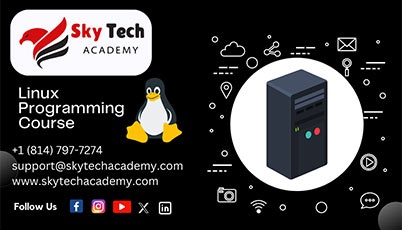Linux Foundation Certification Training
The Linux Foundation Certification Training is designed to equip learners with essential Linux administration and system management skills. It covers core topics such as Linux installation, command-line operations, file system management, user and group administration, process control, networking, security, and troubleshooting. The training includes hands-on labs, real-world projects, and guided exercises to provide practical experience. Learners also gain insights into advanced topics like shell scripting, automation, server management, and cloud integration. This course prepares candidates for industry-recognized certifications such as LFCS (Linux Foundation Certified System Administrator) and LFCE (Linux Foundation Certified Engineer), enhancing their career prospects in system administration, DevOps, and cloud computing. With expert-led sessions, 1-on-1 mentorship, and continual learning support, participants develop proficiency in Linux environments. This certification training is ideal for IT professionals, system administrators, developers, and those aspiring to build a career in open-source technologies and enterprise-level Linux management.





